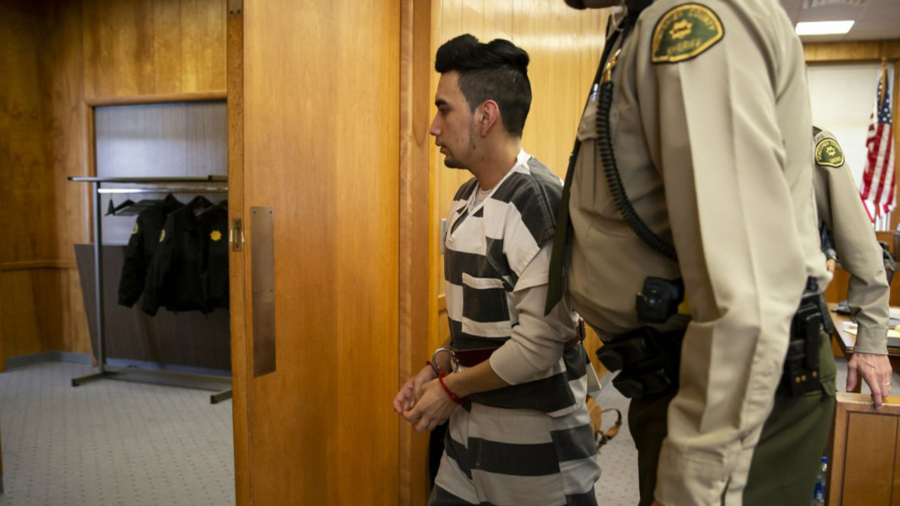A defense expert testified Thursday that a confession by the suspect in the death of University of Iowa student Mollie Tibbetts is not reliable because he was sleep deprived and susceptible to coercion after lengthy questioning.
Brian Leslie, a consultant with expertise in interrogation techniques, noted that the video of the 11-hour interrogation of Cristhian Bahena Rivera shows the suspect denying involvement in Tibbett’s disappearance until near the end, around 4 a.m., after he had been falling in and out of sleep.
Rivera, an illegal immigrant from Mexico, lived in a region of Iowa that is surrounded by sanctuary cities and used a stolen ID and Social Security card to gain employment at a dairy farm, according to Breitbart.
Leslie claims Rivera, 25, who had worked his shift at a dairy farm and had been awake for 24 hours, was vulnerable to suggestions that police had strong evidence and would help him if he confessed.
“Based on the sleep deprivation aspect and the amount of various techniques that were used, I would in my opinion not take a lot of what was said as credible,” said Leslie.
Leslie testified at the end of a two-day hearing on Rivera’s motion to suppress his confession, which his lawyers argue was the product of an improper interrogation. Judge Joel Yates said he would take the matter under advisement and rule “as quickly as [he] can.”
Rivera is charged with first-degree murder in the death of Tibbetts, who disappeared while jogging in Brooklyn, Iowa in July 2018. He faces life in prison if convicted.


His lawyers declined to call Rivera to testify after Yates ruled that he should be cross-examined about his claim that he didn’t understand certain legal rights and was scared to invoke others.
At the end of the interrogation, Rivera told police he followed Tibbetts while she was running, but didn’t say how she was murdered, claiming that he “blacked out,” before placing the victim’s bloody body in his trunk.
An autopsy found Tibbetts died from sharp force injuries. No murder weapon has been found.
Prosecutor Scott Brown refuted claims by Leslie saying his theory failed to take into account evidence that corroborated Rivera’s confession.
Brown noted that Rivera was able to lead officers after the interrogation several miles to the cornfield where her body was found, and also noted that DNA testing proved blood found in the trunk of Rivera’s car came from Tibbetts.
Leslie, however, said it was unusual that a deputy who drove with Rivera to the cornfield didn’t turn on the camera in his car.
Multiple officers testified that Rivera asked to be taken to his home so he could orient himself prior to directing authorities down several roads to the field where the body was later found underneath leaves.
Police questioned Rivera after tying him to a car that was seen on a surveillance video circling Tibbetts while she ran. He was later taken in for questioning on Aug. 20, 2018.
Police argue that Rivera voluntarily agreed to be interviewed. After six hours, they placed an immigration detainer on him after blood was found in his car. An officer then gave him an incomplete Miranda warning before questioning resumed for hours.
According to the Daily Iowan, the defense claims that because officers failed to initially inform Rivera of his rights to an attorney or of his rights to refuse cooperation, incriminating statements that were made involuntarily should be barred from evidence.
Prosecutors concede that some of his statements are likely inadmissible due to the botched warning, but argued that evidence related to the body should be admissible, claiming it would have been found eventually.
Two of Rivera’s relatives testified Thursday that they were denied access to him during questioning, and his aunt, Alejandra Cervantes Valle, said an officer at the sheriff’s office allegedly advised her that he wouldn’t need an attorney.
NTD reporter Justin Morgan contributed to this report.


